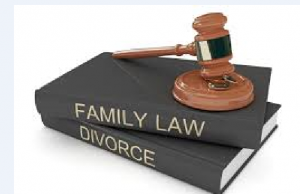People often find themselves in unfamiliar situations where they could use a bit of legal advice. However, they might not be sure of who to turn to. Consulting with an attorney near you will usually be an appropriate step to take. However, what kind of lawyer does each situation require? This guide will walk individuals through several types of lawyers who handle specific types of cases in the most common areas of law: financial, business, civil, and personal law.
Bankruptcy Attorney
Two types of bankruptcy lawyers exist, and both can be consulted depending on a client’s situation. Commercial bankruptcy attorneys will help businesses file for bankruptcy, while consumer bankruptcy attorneys can help individuals do the same. Commercial lawyers should be consulted in order to protect a business from creditors while the business is filing for bankruptcy. Both of these types of lawyers will also help with loan management and developing payment plans to improve the client’s credit. Consult a bankruptcy lawyer when there is no cash flow, when courtroom representation is needed, if checks consistently bounce, when there is no way to handle debt or pay bills, or when the client is constantly fielding calls from creditors or debt collectors.
Business Law
Business lawyers can have multiple concentrations, but the two most common are transactional and litigation. A transactional business lawyer can advise businesses on how to start or develop their company, or even acquire another business. They can also make sure the business complies with existing regulations. Litigation lawyers represent clients who are suing a business or when they themselves are being sued, typically when a legal document is being disputed. Contact a business lawyer for help with the following: corporate compliance, taxes, mergers or acquisitions, employee management, drafting or reviewing documents, or leasing property.
Civil Law
Civil litigation attorneys will help clients file and pursue non-criminal lawsuits. They can also direct the client as to whether to take a case to court or file outside of court. They handle cases such as alimony, debt settlement, workplace discrimination, and personal injury. However, there are also lawyers who specialize in personal injury. Civil lawyers often work with clients who require personal injury assistance along with another type of legal support.

Estate Planning
Estate planning attorneys guide clients through the division of assets, developing trust funds, choosing guardians and custodians, and writing or developing a will. They can also help draft documents to enact these wishes, and will ensure that final wishes are followed in the event the client is unable to make those decisions for themselves. Some of the documents estate planners can help review or draft include a trust, beneficiary documents, a will, and medical and durable powers of attorney. Many seniors have a personal estate planner, but it is never too early to consult with such an attorney.
Litigation
Litigation attorneys are more specific than civil attorneys, as they work on filing and pursuing lawsuits. For instance, they have the knowledge to advise clients regarding whether or not to settle a case inside or outside of the courtroom. If a client decides to settle out of court, the litigation attorney can help to mediate or arbitrate the lawsuit, or they will recommend another mediator whose skills are more applicable to the case. Instances where a client should consult with a litigation lawyer include when they are unsure of if a case would likely be successful or not, or if they are unsure of all of the paperwork and necessary steps that need to be adhered to to continue with the case.
Personal Injury
This type of lawyer differs from a medical malpractice lawyer as they have a much broader focus, and do not just handle cases relating to injuries sustained while under a physician’s care. Instead, personal injury lawyers accept cases where their client was injured in the workplace, due to a car accident, or in many other circumstances outside of their client’s control.
Employment Lawyer
Representing individuals in: Discrimination Actions (e.g., sex, race, color, harassment, national origin, religion, age, and disability) Harassment (e.g., Sexual Harassment , Hostile Work Environment) Unfair Labor Practices (e.g., denial of wages, overtime , tip-pooling , and equal pay) Defamation of Character Denial of Leave (e.g., Family Medical Leave Act , Uniformed Services Employment and Reemployment Rights Act.
If any of these situations apply, if advice is needed for an upcoming case, or if the client is simply seeking a second opinion, find a top lawyer or attorney near you who specializes in exactly the type of legal services being sought. Contact an attorney near you today to schedule a free consultation and to learn more about resolving the legal matter at hand.




